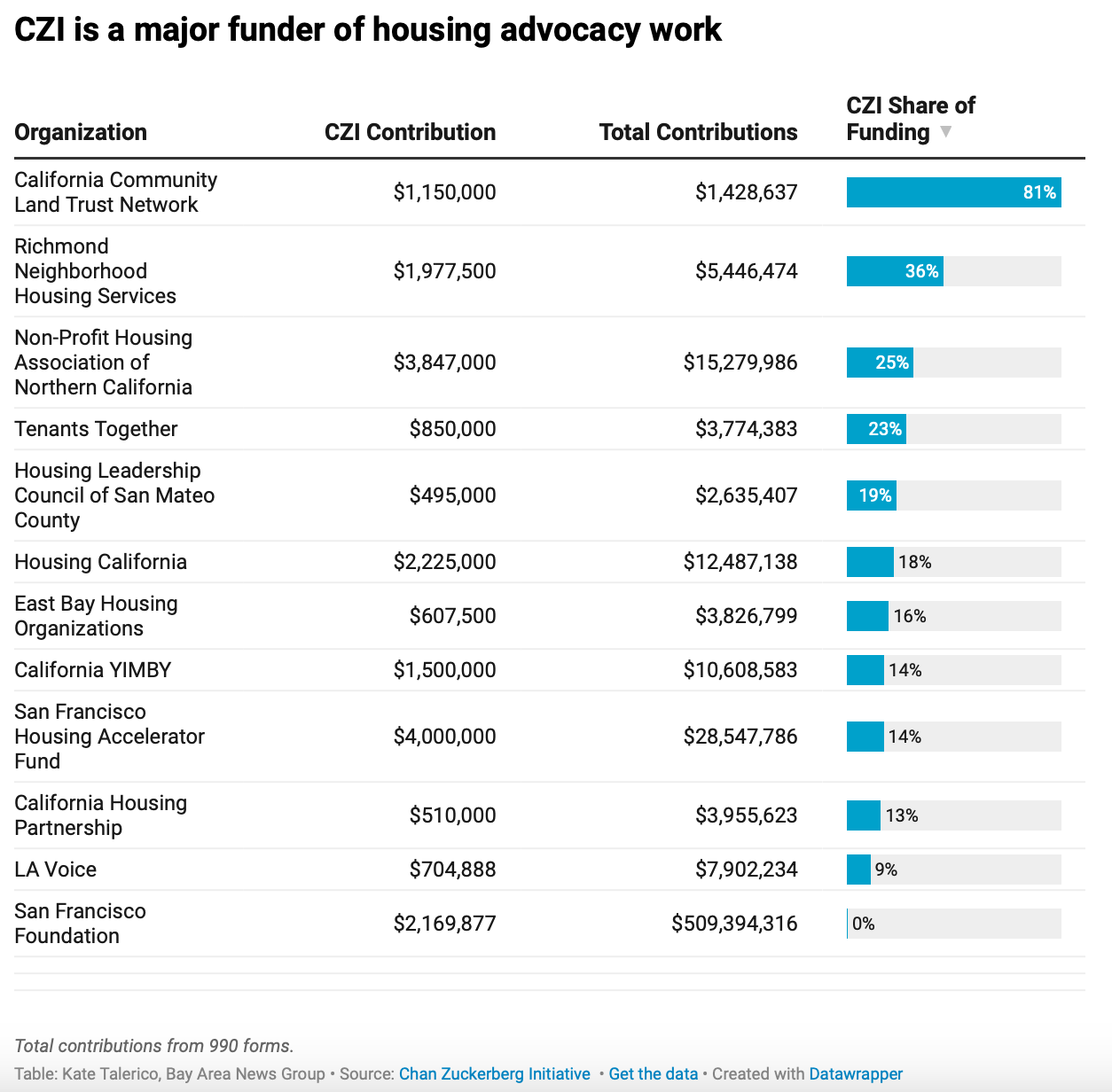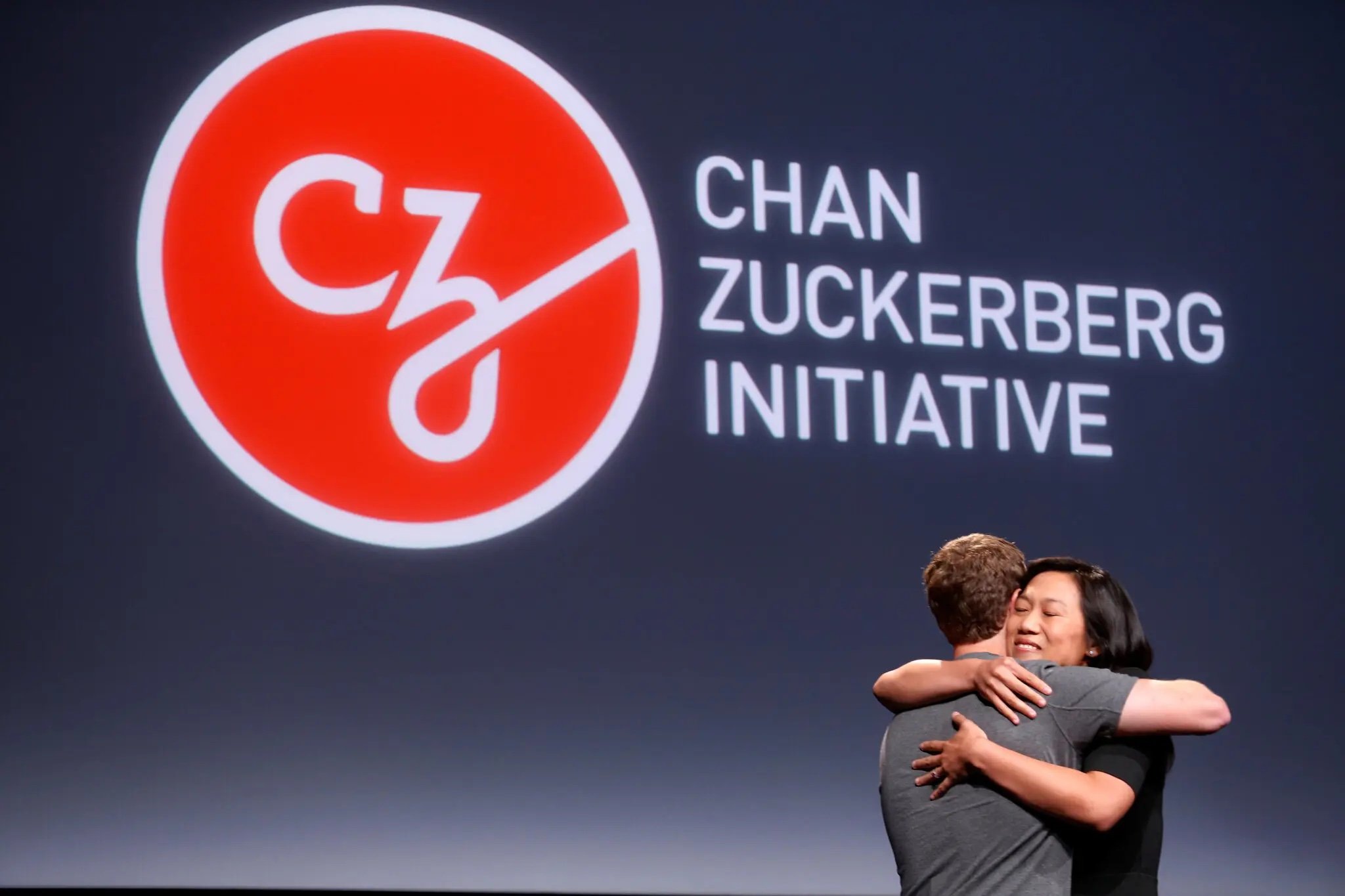🏡💚 Tech ideology and Zuck's cuts to housing
The ideology of Big Tech has fascinated me for years. Before I even moved to California, I was curious about the futuristic and bizarre ideas that percolated around the tech industry — things like transhumanism, the singularity, and effective altruism. They were provocative in their combination of science fiction, a hyperfocus on rational thinking, and glorification of computers and artificial intelligence.
To me, these were mostly quaint and somewhat provincial ideologies, almost entirely limited to Silicon Valley and tech-oriented blogs on the internet. And to some degree they still are. But as the titans of tech have accumulated more and more power and resources, these strange ideologies have also begun to break containment and seep out into the rest of society. This was no more apparent than Elon Musk’s short-lived installment in the White House with DOGE, where he and his cronies were able to wreak a huge amount of devastation before his ‘we all saw that coming’ public breakup with Trump.
On the surface, Musk’s political agenda seemed to be essentially anti-woke neoliberalism, destroying social programs and gutting the public sector while trying to trigger the libs online. And while that may be the primary legacy and outcome of his stint at DOGE, the strain of tech ideologies that he ascribes to is much weirder and more wide-ranging.
Because it’s not just Musk. It’s Bezos’ obsession with space travel, Peter Thiel’s mixed feelings about humanity existing in the future, the techno optimism of Marc Andreessen, and Curtis Yarvin’s goal of creating an American monarchy. Learning about these belief systems would be funny if they weren’t actual convictions held by some of the most powerful people in the history of the world.
In fact, it feels much more like a rabbit hole, and for the purposes of this newsletter I’ll need to restrain myself or else I’ll start to seem crazy by association.
In the future, maybe I’ll do a deeper dive into the TESCREAL bundle, the attempts to create digital nations with tech dictators, or the apocalyptic visions of tech fascism.
But for now, I want to call attention to another tech billionaire that has recently abandoned huge commitments in philanthropic funding: Mark Zuckerberg.
In 2015, Zuckerberg (founder of Facebook/Meta) and his wife Priscilla Chan founded the Chan Zuckerberg Initiative (CZI). They did so with a commitment to science, equality, and education. Stylized as an open letter to their newborn daughter, they said, “Our hopes for your generation focus on two ideas: advancing human potential and promoting equality.” This included a pledge to “participate in policy and advocacy to shape debates.”
In 2019, Meta announced $1 billion over 10 years to fight the housing crisis in California and beyond. Over the next several years, Meta quietly walked away, first ending its direct funding of affordable housing construction, and then eventually shuttering its housing team altogether.
As part of that initial announcement, CZI also made a $50 million commitment to housing. In 2024, Priscilla Chan stated their mission: “To improve housing affordability for folks across the socioeconomic spectrum, but especially for those who can least afford it, and to promote racial equity and economic inclusion.”
But earlier this year, CZI abruptly cut off its housing funding, leaving many housing orgs across the state reeling with significant unanticipated holes in their budgets.
In many ways, this was years in the making. It closely mirrors Zuckerberg’s own anti-woke turn and increasingly cozy attitude toward MAGA. At the beginning of this year, Zuckerberg was very early on the anti-DEI train (diversity, equity, and inclusion), first saying they would de-emphasize DEI internally, and then quickly ending diversity-based recruiting and scrubbing its website of all references to DEI. That also included deleting lines in the “letter” to their daughter, until restoring them after it receiving questions from the New York Times.
At the same time, they began laying off or reassigning employees who ran “diversity initiatives.” A few months later, a school for low-income students that Priscilla Chan had founded announced they were closing. Then they cut off their housing work.
The news of these funding cuts leaked out slowly as many of these groups were still reeling and trying to see what options they had. Many still hoped that they might be able to salvage something or prolong the timeline. And as a result, CZI’s decision didn’t get a lot of attention until much later.
In the Mercury News article about this in May, Eddie Irons at All Home summarized the impact when he said, “It’s a blow to the housing justice movement across California. It’s touching many if not all of the most effective housing advocacy organizations across the state.”
That same article revealed some of the organizations that were significantly affected, many of whom are close partners and allies in our work and our campaign for green social housing.
In one sense, this isn’t a shocking development. Many nonprofits are all too familiar with the experience of being at the whims of funders, who often change course and change priorities. It is part of the deep contradictions that many movement groups face as they receive money from some of the same people or groups they are set out to oppose.
This particular example feels more poignant because of the wholesale cut to housing and its direct ties to Zuckerberg’s political transformation. This is not just an isolated incident — it’s representative of the larger shift of Big Tech toward MAGA and away from the Democratic Party.
It also has huge consequences that are still rippling across the California housing advocacy community. I think many people feel that relying on billionaires to fund our movement work would always need to be a short-term deal with the devil. If we are successful in our work, those forces would need to be allied against us, much less actively funding us. So this is perhaps just an early domino to fall in that trend, one which could start to pressure and motivate movement organizations to think about what financial sustainability looks like that doesn’t rely on mega-wealthy donors. But that is a longer-term goal, and in the meantime there are huge ramifications for housing justice organizations.
In addition to the brutal oppression and large-scale politics of fear, we are experiencing a period of political retrenchment that is creating both a mindset and reality of financial scarcity. Many organizations are struggling to bring in funding needed to sustain their work. And that’s exactly why I think it’s so important that we actually talk about it, expose what is happening and who is responsible, and make some effort to mentally pull ourselves out of our own corner and think more broadly about movement infrastructure. From a movement-wide lens, the housing justice and tenant groups across California deserve our broader support and collective efforts to try to mobilize resources to keep them going. They are not unique in that need, but I hope we maintain that spirit of solidarity and lend them a hand in whatever ways we can.
Hugs all around. Source: New York Times
WHAT WE’RE READING
The Narrowing of Mark Zuckerberg and Priscilla Chan’s Philanthropy (NYTimes) — read more here
California Forever Wants to Build a Manufacturing Town (KQED) — I may write about this in another installment of this Big Tech ideology series…
‘Reclaimer’ Benito Flores dies while resisting eviction from El Sereno home (LA Public Press)
Airbnb allowed rampant price gouging following L.A. fires, city attorney lawsuit alleges (LA Times)
Book: World Eaters: How Venture Capital is Cannibalizing the Economy
Book: Homes for Living: The Fight for Social Housing and a New American Commons — haven’t actually read these books, but they come highly recommended!
Is your rent being set by a computer? What California tenants should know (Sac Bee) — yet another side of tech’s influence on housing…
Feel free to reply any time! I always enjoy hearing from people and getting any feedback/questions/additional thoughts.
We send these out on a somewhat weekly basis. If you don’t want to get these newsletters, feel free to unsubscribe below. If you know someone that would be interested, send me their email, or you can forward this along to them and they can use this link to subscribe.



